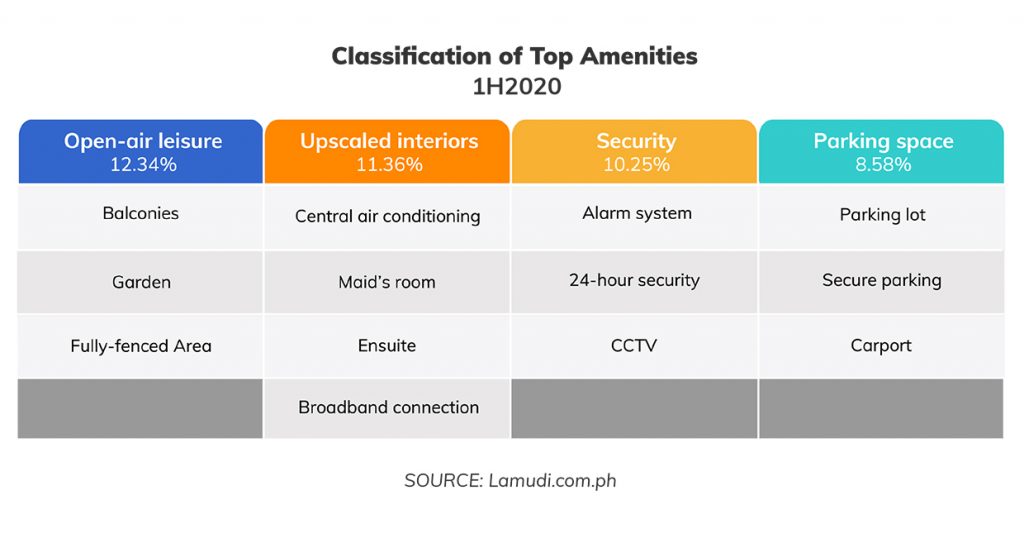Property seekers continue to put value on amenities such as comfort, connectivity and active leisure. In terms of comfort, they want a location that’s close to essential establishments and emerging infrastructure developments.
Online real estate marketplace Lamudi recently released its Jan. 2019—June 2020 report, which showed real estate movement in the Philippines right before the pandemic and up to this year’s first half. The report also had Colliers International Philippines revealing a strong recovery of the real estate market outside Metro Manila.
Lamudi’s report shows that overseas interest in Philippine properties is still significant despite the pandemic and the government’s repatriation program, with most page views and leads coming from the North American region (US and Canada). According to Migration Policy Institute, the US is the country where the highest number of OFWs are concentrated. Other countries that show interest in real estate are the Middle East (Dubai, Doha, Abu Dhabi, and Riyadh Province), Canada (Ontario, Alberta, and British Columbia), England, Australia (New South Wales, Victoria, and Queensland), and Japan (Tokyo).
As expected, property seekers are more interested in cities outside Metro Manila, especially those in the immediate surrounding provinces. The top provincial cities that registered the highest change in leads are Calamba (37.34 percent), General Trias (30.45 percent), Santa Rosa (27.22 percent), and Lipa (26.87 percent).
Within Metro Manila, Valenzuela, Marikina, Pateros, and Caloocan — located on the fringes — still show positive growth. Outside Luzon, only Cagayan de Oro shows a significant increase in leads (24.73 percent). Colliers asserts a strong recovery in 2021, particularly in mid-income residential segments in Cebu and Davao.

Property seekers continue to put value on amenities such as comfort, connectivity and active leisure. In terms of comfort, they want a location that’s close to essential establishments and emerging infrastructure developments. Even before the pandemic, however, people have been interested in homes with a garage and built-in wardrobe.
Now, as expected, air conditioning and stable internet connectivity are becoming priority features because of the new-normal setup for work and education.
There is also an increasing interest in vacant lots in strategic locations near the metro since the beginning of 2019.
“This suggests that property seekers are not only looking for turnkey housing solutions (in the form of house and lot), but they are also willing to invest in property requiring development in the future,” says the report.
Antipolo ranked first in terms of page views and visits to the site, given its large supply of vacant land, including those within gated communities.
“With warehousing as one of the growing industries amid the pandemic, vacant lots near and in the fringes of large cities may continue to attract real estate investors in the Philippines and abroad. Homebuyers also consider options that will provide a bigger land area, or will at least maximize the square footage they get for their budget.”
Time and again, history shows that real estate is one of the most resilient industries despite natural calamities, pandemics and economic crises. Filipino property seekers, particularly the OFWs, stay active in the residential market, boosting the sector’s recovery in 2021.
